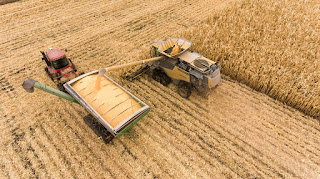Composting is a greener way of converting wet scraps into nutrient-rich manure. The organic waste management company helps you to start composting. Every one of us should start making a compost pile in nearby garden areas. There are various ways to get started with it. A few include direct composting, vermicomposting, modern methods, etc.
In this blog, we will identify the costs associated with each method of compost. That is how you will be able to decide which way should be opted for making nutrient-dense manure.
So, let’s identify the costs involved in each method:
Direct composting
It is the most common & old method that one can easily go for. Also, the overall cost structure involved is affordable for any person. You will require watering can, sharp spade, shovel, pitchfork, shredders & chippers, etc. All these types of equipment are not much expensive and are easily available in local shops. Using these, you can harvest a good quality pile in the garden areas.
vermicompostingYou can also go for the vermicomposting method. In this method, the worms break down the organic foodstuff into microparticles, digest it, and excrete it in the form of worm casts. These worm casts are known as vermicompost. Choosing this way would require you a compost bin, watering can, and red wiggler worms. The total cost you will be needed for producing vermicompost is approximately Rs 15.68 per kg of compost.
EMO composting
EMO method or Effective Microorganisms compost is generally used when you have to harvest a pile indoors. One example of such a type is the bokashi method. To execute this, you will require inoculated bokashi bran. This bran is usually made of wheat bran, blackstrap molasses, water, etc. It is easily available on online selling platforms.
Modern machine compost
Lastly, you can also choose for modern ways of composting. In these techniques, you will just need to install waste composting machines like Goldust at your place. Thereafter, you will be required to put the wet scraps & the rest is taken care of by the automated machine. The main advantage is that it saves time & energy which otherwise gets wasted in other composting activities.
Conclusion:One may find conventional methods a bit of time-consuming & energy taking. Such people can always choose to install an organic waste composting machine-like Goldust. Goldust is a product of LAHS Eco Engineering - an organic waste management company.
This organic waste composter machine organically decomposes any kind of wet
scraps and produces enriching manure. All the process is completely odorless, noiseless,
and maintenance-free. You can visit the website of LAHS Eco Engineering for
more detailed knowledge.
























